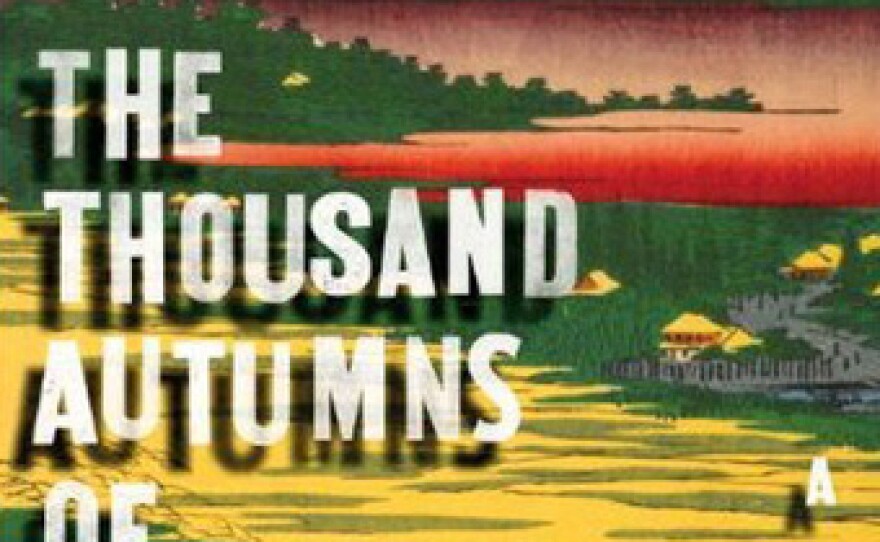UPDATE: The winner of the 2010 Man Booker Prize was just announced: "The Finkler Question" by Howard Jacobson.
“The short story as a form is like a cyclist’s contour-hugging lycra pants whereas the novelist’s (are like a) big baggy pair of cargo trousers, (with) lots of pockets with space to put things in.”
-David Mitchell
The number of pockets that David Mitchell has in his own cargo pants seem endless. He has made a name for himself among the literati, due to his genre-bending novels "Ghostwritten" and "Cloud Atlas," and has shown amazing versatility with the identity-searching "Number9Dream" and the coming-of-age novel "Black Swan Green."
His latest, "The Thousand Autumns of Jacob de Zoet," has earned even more widespread critical acclaim, as well as his 4th longlist nomination for the top British literary award, the Man Booker Prize, which will be announced today.
We know Mitchell hasn't won it, because he didn't make the shortlist of possible winners. (For conspiracy theorists such as myself, suspicion lurks around the persistent snubbing of Mitchell by the Booker judges)
Regardless of whether his latest novel deserves award recognition by the stuffy, critical elite in England, it is the finest book I have read this year.
"Thousand Autumns" seems fairly straightforward on the surface – it is a novel set in Japan in the year 1799. The Dutch are the only Westerners allowed to trade with the isolationist Shogunate, but are still forbidden from stepping on Japanese soil, relegated to the manmade, high-walled island of Dejima in the middle of Nagasaki harbor.
Jacob de Zoet is a low-level clerk for the Dutch East Indies Company who has traveled to Japan to make his fortune in order to return home and marry the woman he loves. His five-year plan is altered when he meets the beautiful Orito Aibagawa, a midwife and student to the Dutch doctor on the island.
Jacob begins a one-sided courtship of Miss Aibagawa until she is mysteriously banished to a mountaintop nunnery of nefarious repute.
Jacob's ensuing trials and tribulations are magically unfurled, and Mitchell creates a vivid, crisp vision of 18th century Japan as it teeters on the brink of the world at large.
Thus far, all of his books have employed different genre styles – sometimes within the same book - yet they have the thinnest, subtlest of threads connecting them.
Most of us don’t even notice recurring characters flitting between books, but they are there, just on the edges of our vision, linking hands to connect themselves to one greater work.
I so rarely read books for a second time, yet almost immediately upon finishing "The Thousand Autumns of Jacob de Zoet," I wanted to start again.
After hearing him speak at a booksigning recently, where he referred to the subtle “hyperlinks” between his other books and read aloud a few exquisite passages, I have been considering abandoning my other potential reads and re-reading all five of his novels in successive order.
I may not have the time and I would never expect anyone else to undertake such a project, but if you start with just this one, I would guarantee that "Thousand Autumns" will be the best new novel you read this year.
Seth Marko is a book buyer and seller at Warwicks in La Jolla and author of the blog, The Book Catapult.





